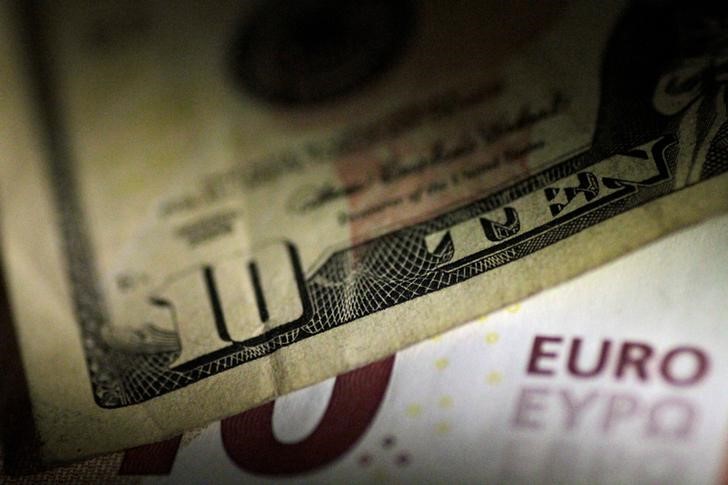Investing.com – The US dollar retreated on Monday, giving back some of its recent gains, after Donald Trump’s pick for US Treasury secretary appeared to reassure the bond market, while the euro recovered from two-year lows year from last week.
At 05:05 ET (10:05 GMT), the Dollar Index, which tracks the greenback against a basket of six other currencies, was trading 0.6% lower at 106.892, after hitting a two-year high on Friday.
Dollar drops after Trump nomination
President-elect Donald Trump on Friday nominated fund manager Scott Bessent as his Treasury secretary, a move welcomed by the bond market as government bond yields fall.
However, Bessent is also openly in favor of a strong dollar and has supported tariffs, suggesting that any pullback in the currency could be short-lived.
“We’re not sure if the recent bullish flattening of the US Treasury curve represents the market viewing him as a ‘safe pair of hands,’ but he certainly doesn’t sound like someone who will force newly elected President Donald Trump into weak dollar policy . ING analysts said in a note.
The main economic focus this week will be on Wednesday’s interest rate, the Federal Reserve’s preferred gauge of underlying inflation.
This “is expected at a somewhat tight 0.3% month-on-month and will raise market doubts about whether the Fed will cut spending in December after all,” ING added.
Recent persistent inflation data has led the Fed to take a cautious stance on further rate cuts.
The euro is recovering from a two-year low
In Europe, trading 0.6% higher at 1.0476, moving away from Friday’s two-year low of 1.0332, after European manufacturing surveys showed broad weakness last week, while US surveys surprised on the high side.
This economic weakness is causing markets to price in more aggressive easing by the European Central Bank.
“The position here remains that there is no budgetary calvary on the horizon in the eurozone and that the only way to tackle the current malaise is for the European Central Bank to cut interest rates faster than normal,” ING said.
The ECB has already cut rates three times this year, but investors now see a 50% chance that rates will be cut by 50 basis points on December 12 instead of the usual 25, given weak growth and rising recession risks.
rose 0.4% to 1.2576, recovering from a six-week low on Friday after Britain disappointed, leaving the market on a higher chance of rate cuts from the .
That said, Clare Lombardelli, deputy governor of the Bank of England, said on Monday she was more concerned about the risk that inflation would turn out higher – not lower – than the central bank had forecast.
“I view the likelihood of downside and upside risks to inflation as broadly balanced,” Lombardelli delivered her first speech since joining the BoE in July.
“But right now I’m more concerned about the potential consequences if the upward trend materializes, as this could require a more expensive monetary policy response.”
The yen was helped by the decline in US interest rates
fell 0.2% to 154.41, after a decline of 0.4% in the previous week. The currency pair tends to closely follow movements in government bond yields and has risen sharply over the past two months as the yen weakened.
“The Japanese yen is starting to show some strength on the crosses. This is partly due to the shift in the mix of fiscal and monetary policy,” said ING. “On the margin, the Japanese budget stimulus encourages expectations that the Bank of Japan will still increase in December. Nearly 15 bp of a 25 bp increase is now priced.”
fell slightly to 7.2447, after rising 0.2% last week.


